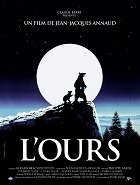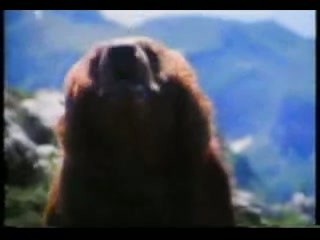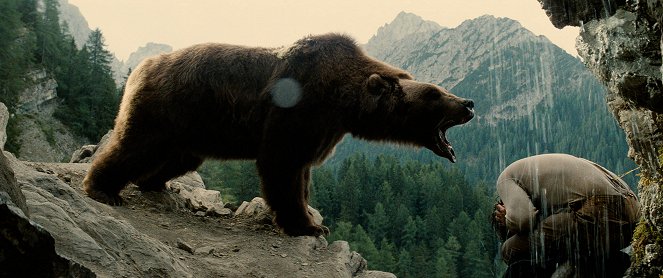Réalisation:
Jean-Jacques AnnaudScénario:
Gérard BrachPhotographie:
Philippe RousselotMusique:
Philippe SardeRésumés(1)
Un ourson orphélin, Youk. Un grand ours solitaire, Kaar. Deux chasseurs dans la forêt, Tom et Bill. Le point de vue des animaux. Ces simples lignes de Jean-Jacques Annaud ont suffi à convaincre Claude Berri de se lancer dans l'aventure la plus incroyable du cinéma français. (Pathé Films)
Vidéo (1)
Critiques (6)
Probably the only film of its kind. A charming fairytale and a gripping animal survival story in one. Such a range of emotions is often not found even in high-budget and well-crafted "human films". Jean-Jacques Annaud, moreover, managed to utilize his extraordinary aesthetic sensibility here as well, so we can experience a phenomenal visual composition supplemented by excellent camerawork and music.
()
Hmm, very nice, but I certainly can’t say it captivated me or, God forbid, that I will need to watch it again.
()
I almost can't believe that this is not a documentary shot with a hidden camera, but a feature film based on a script. The "acting" of the bears is so convincing that not even the trained ones from the Russian circus school could have done it better. And it’s also a beautiful movie. It is also worth mentioning that the animated dreams of the bears are from the work of the Czech animator Břetislav Pojar.
()
I understand and respect the criticisms aimed at even my most favourite films, those that I consider great. But this one is so incredibly beautiful, endearing and moving that I take any lower rating as a bit of a personal insult. The performances of the bears are absolutely fantastic and perfect, the nature shots are nothing like the BBC documentaries, the actors don't get so much space to get anything wrong, and the flawless and memorable finale crowns everything. There should be more films like this. 100%
()
A decade before Lars von Trier stunned viewers with his supreme Golden Heart trilogy, Annaud showed everyone the emotionally devastating power of the medium of film. But he didn’t go the gimmicky route of the greatest possible purity and immediacy with handheld cameras and minimal post-production, but instead worked with the full arsenal of the means of expression available to him at the time. Thanks to the premise of the story about bears and the ambition to execute it with minimum dialogue and with real animals in the main roles, and thus with maximum space for them in the narrative, his film is, in principle, no less conceptual than von Trier’s ostentatiously provocative experiments. For many of my generation, The Bear was an unforgettable and even seminal experience in the sense of it being our first encounter with precise emotional manipulation that can be hated and admired in equal measure. Annaud masterfully balances sentimentality and rawness, hyperreality and naturalism. In fulfilling his concept, he also proves that a film (almost) doesn’t need any words to drag the audience through a full range of emotions. As in von Trier’s later work, here we already see the merciless nature of the director’s dictate, as he puts his characters in tense situations, in which he lets them wallow for as long as possible in order to totally exhaust the audience without going beyond boundary of the desired effect. Even years later, and even only in segments, The Bear is still just as impressive and, with an educated view, even more captivating. I will dare to watch it again after a number of years, not only because The Bear is one of those films that truly leaves an indelible mark on the viewer’s memory.
()



Annonces